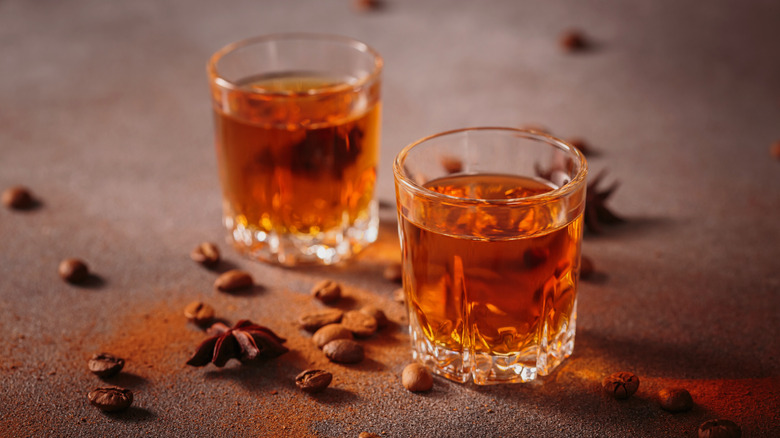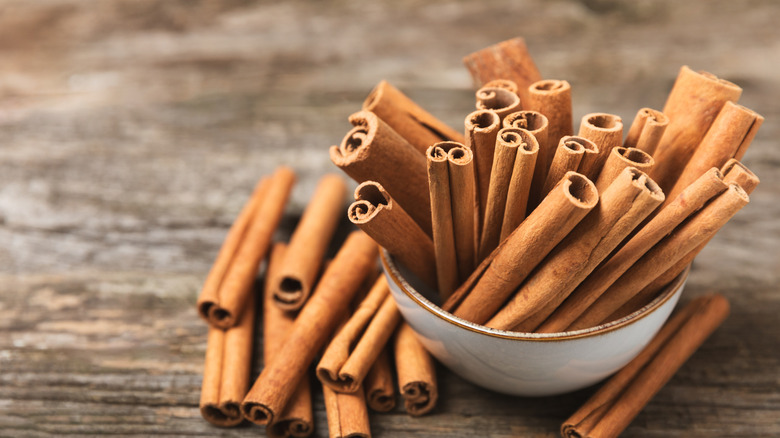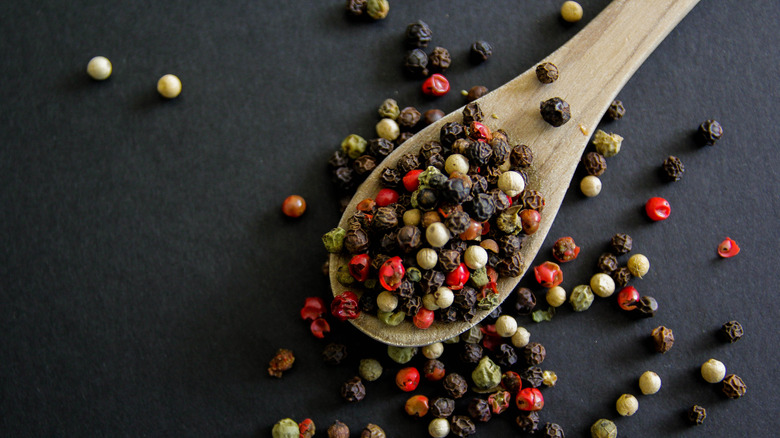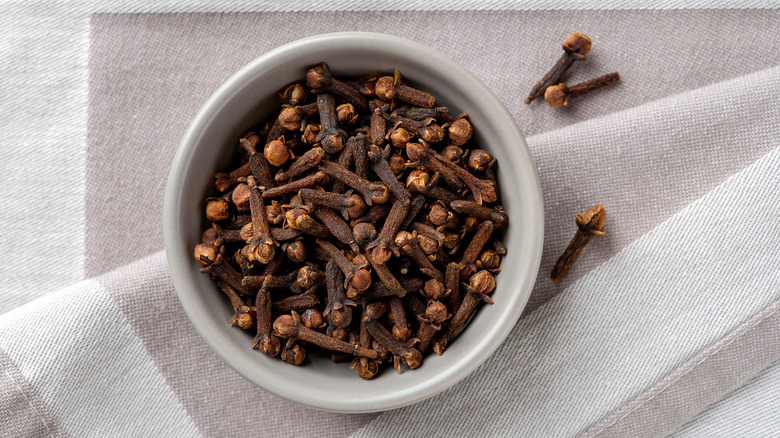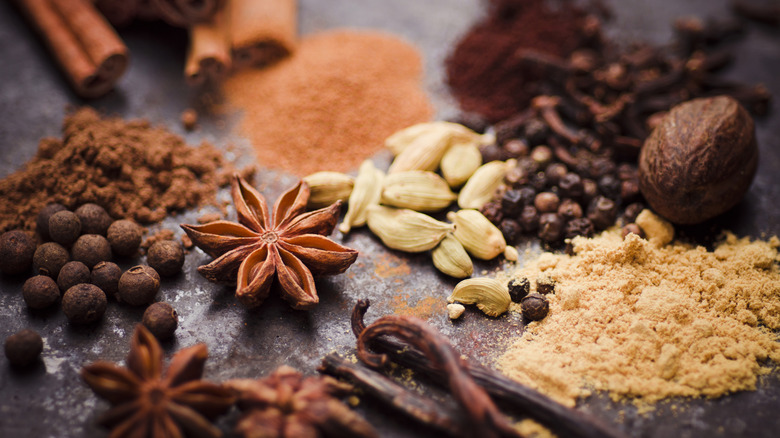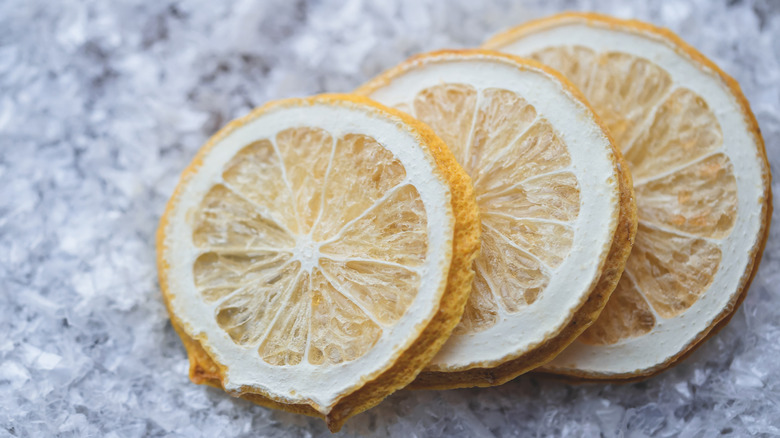Turn Everyday Spices Into Bold Cocktail Infusions
We're all for tequila and corner-store margarita mix or instant cocktail packets, but if you have extra time, infusing your own cocktail blends with spices unlocks a whole new world of flavor. If you've never infused liquor with spices, the process is simpler than it seems. To understand the art of spiced cocktail infusions, Food Republic spoke with Nicole Yarovinsky, beverage director at Michelin green-starred Chicago restaurant Daisies, and Denisse Soto, beverage consultant at Michelin-starred Chicago restaurant Cariño.
The time required for infusions depends on the method and ingredients. According to Soto, if you're using a high-proof spirit, you should infuse your spices for at least a week in a sealed jar or container in a cold room. "However," she noted, "there are other methods to achieve a faster infusion, ranging from 3 to 12 hours: a pressure method with a whipping siphon, a hot siphon typically used for tea or coffee (though this yields a smaller volume), or a sous vide, which produces great results by slow cooking for about 12 hours."
Not all ingredients infuse the same, however, so timing should be adjusted based on spice potency. "For example, if you're using stronger herbs to create a homemade gin-style infusion, you can steep them with the classic method for just three days in a normal-proof spirit (80–100 proof)," Soto explained. "For hot peppers, a faster infusion can be achieved in about 24 hours — or even overnight — depending on the level of spice you want in your cocktails. For nonalcoholic infusions, the hot siphon works wonderfully, delivering a clean, light-colored liquid with strong flavors from your components."
Cinnamon complements warm flavors
The spicy sweetness of cinnamon isn't just great for mixing into coffee and a cinnamon and caramel pull-apart loaf – it's the perfect cocktail infusion. According to Nicole Yarovinsky, cassia cinnamon pairs well with rums, like a Clairin from Haiti, "to play with those funky banana and lemongrass notes," she explained.
Infuse your liquor for a couple days for subtle, sweet cinnamon notes. Let it sit for a week or two, and you'll get a bold, fiery flavor similar to the classic Fireball whiskey — guaranteed to wake up your tastebuds in any cocktail. You can also do a quick hot siphon in some Clairin if you want some spice in a pinch.
Pair peppercorns with light liquors
Peppercorns offer more than just heat and spice to your drink. Depending on which type of peppercorns you use, you'll add a variety of flavors and aromatic profiles to your drink. For example, black peppercorns offer a classic, strong pepper burst while white peppercorns offer much more heat with less taste.
Szechuan peppercorns, however, are more citrusy and floral, which Nicole Yarovinsky believes can "... amplify notes of grassy jalapeños and savory profiles" in a tequila cocktail. Simply spoon one tablespoon of peppercorns per fifth of liquor, and let it sit until your alcohol is at your preferred spice level — two days is a good starting point.
Cloves complement richer flavors and dark liquors
Cloves are another warm spice that lend their sweet, slightly astringent, and earthy flavor profile to alcohol beautifully. Specifically, they are perfect for infusing into dark liquors, like rum or rye whiskey, which can enhance their rich, spicy notes. Nicole Yarovinsky suggested pairing cloves with a Dark Venezuelan Rum specifically, "to complement the rich notes of tobacco, roasted chicory root, and cacao."
Since cloves are so strong in flavor, only use a few cloves to start. Once you're happy with the intensity, you can go ahead and make a clove-infused old fashioned or Dark and Stormy cocktail.
Increase aromatics with cardamom and anise
Commonly used in Indian and Scandinavian cuisines, cardamom is a strong, aromatic spice from the ginger family. Similar to its use in masala chai and Turkish coffee, it can add depth and bittersweet floral notes to your cocktail. Try infusing your vodka or gin with cardamom (as well as other spices like ginger, nutmeg, or even orange to highlight its citrus notes). Just be sure to gently crush the cardamom pods before adding to your liquor, in order to release the oils, and in turn, the flavors and aromatics.
In the alcohol world, anise is best known for its licorice-like taste and flavoring for strong liquors like absinthe and Italian sambuca. You can either use star anise or regular anise seed — although star anise has a stronger licorice flavor, in which case it's a good idea to use about half as much. If going the spicy, warm flavor route, use bourbon and add lemon juice for brightness. Or, make an anise Moscow Mule cocktail, harmonizing sweet ginger and anise vodka.
Think beyond dried spices
You don't have to limit your infusions to whole spices, either. One pairing that Nicole Yarovinsky suggested was, "dried lemon peels with some coriander in a peppery rye whiskey." Coriander, the seed of the cilantro plant, has natural citrus notes that pair perfectly with lemon and can highlight the complexity of a rye-forward whiskey.
Rye is famously spicy, so the lemon brings a sharpness that balances the peppery, smoky notes, and coriander enhances that citrusy tang. If you're doing a cold infusion, let the flavors mingle together for a day, and then give it a small taste. Don't go overboard with the coriander, either, or you may lose those subtle lemon notes from the dried peel.

